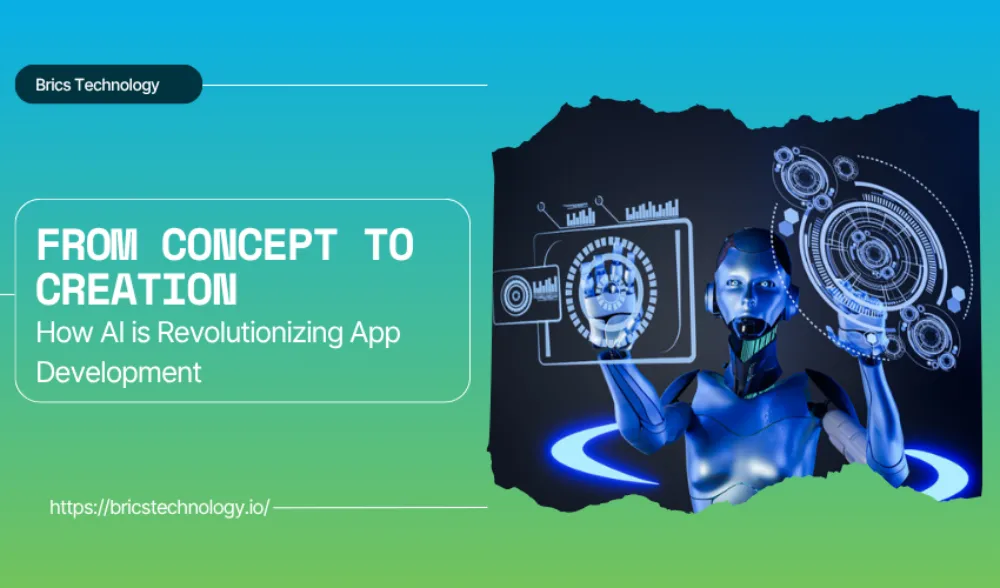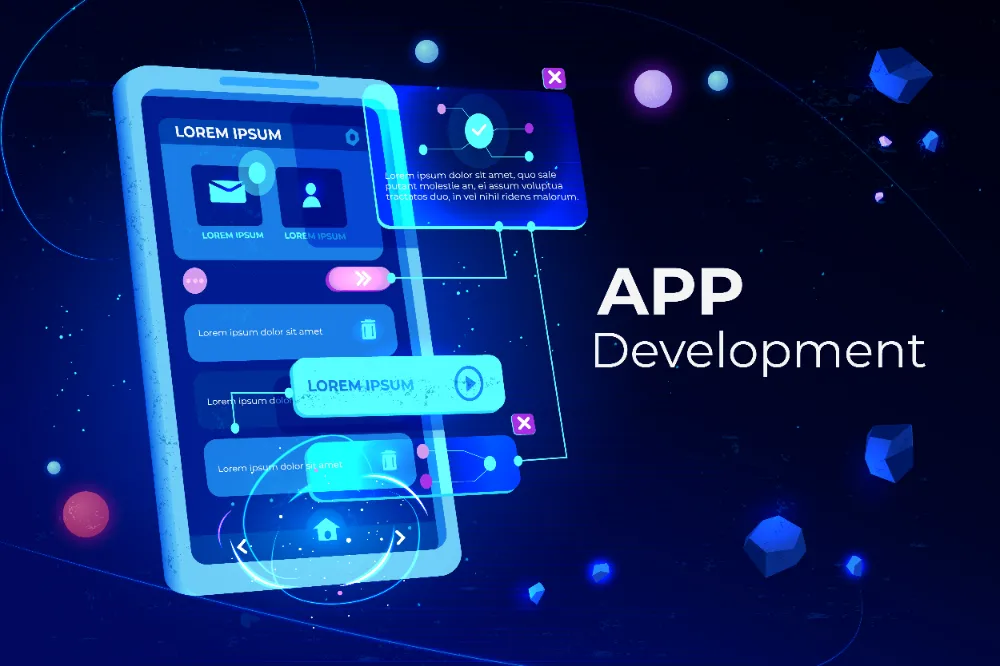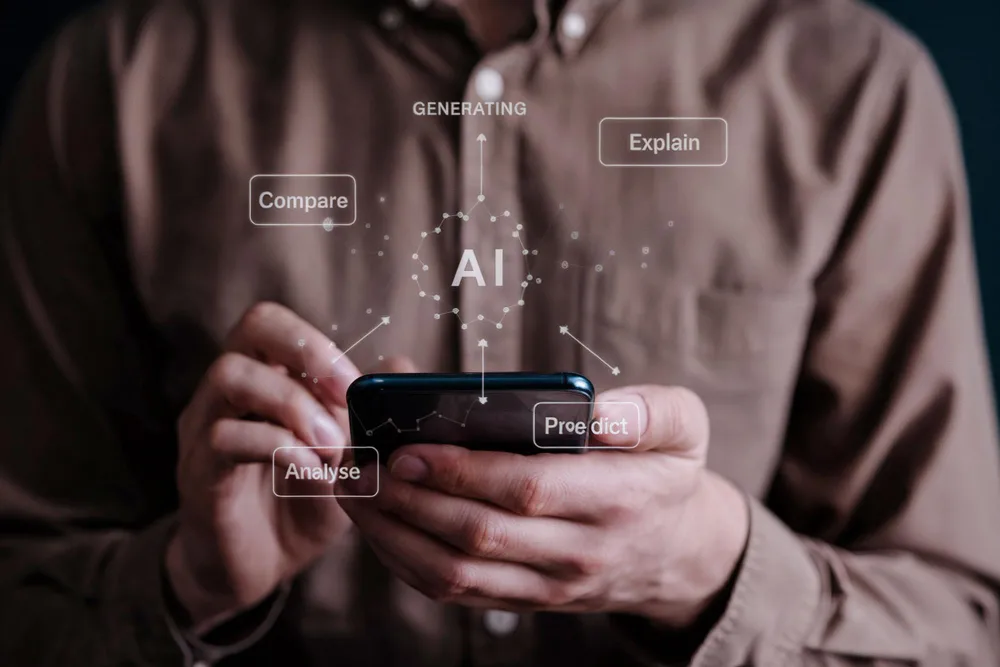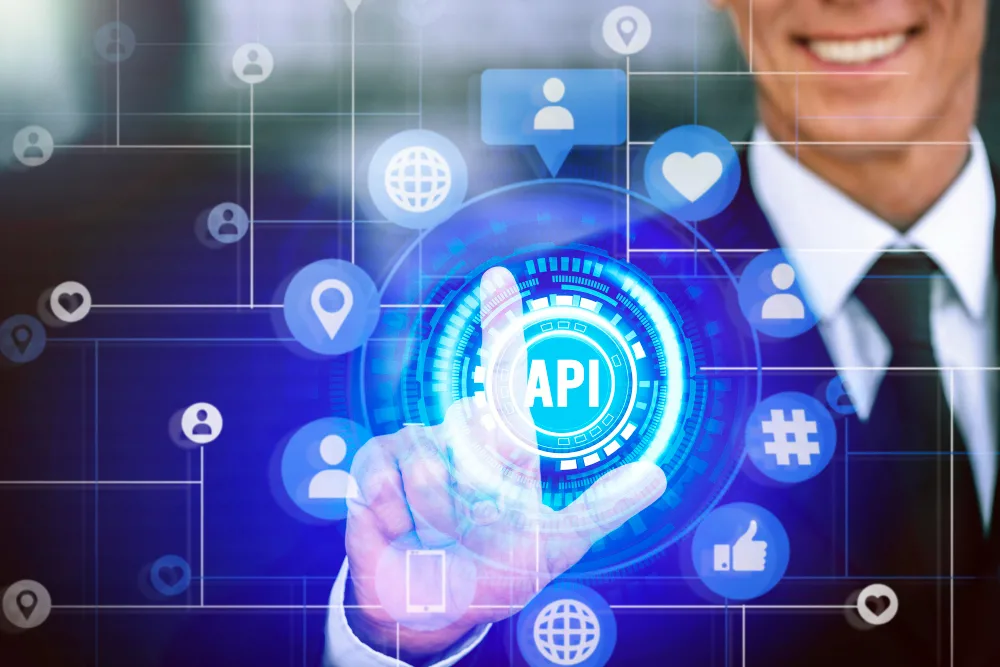From Concept to Creation: How AI is Revolutionizing App Development

App development has always been a dynamic space, driven by technological innovation and evolving user demands. Traditionally, building an app was a long, resource-intensive process requiring significant coding expertise, planning, and investment. Today, that narrative is changing rapidly. Thanks to artificial intelligence (AI), we are witnessing a dramatic shift in how apps are conceptualized, designed, and deployed. With the rise of AI app development services, the entire process is being reshaped making it faster, more efficient, and accessible to a wider range of creators, from seasoned developers to complete beginners.
One of the most groundbreaking tools in this space is the AI App builder, which enables users to transform their ideas into functional apps without writing a single line of code. These platforms use machine learning, natural language processing, and other AI capabilities to streamline every stage of development, from ideation to deployment. In this blog post, we’ll explore how AI is revolutionizing app development, discuss its benefits and challenges, and take a closer look at the future of AI-driven digital creation.
The Traditional App Development Landscape

Before we delve into AI’s impact, it’s important to understand the traditional app development model. This process typically involves multiple stages, including brainstorming, wireframing, designing user interfaces, backend development, testing, debugging, and launching. Each stage demands different skill sets and often involves multiple specialists, including UI/UX designers, front-end and back-end developers, QA testers, and project managers.
This conventional process is not only time-consuming but also expensive. It often requires months of work, significant financial investment, and a high degree of technical knowledge. Furthermore, iteration cycles can be slow, especially when changes in user requirements arise mid-development. For startups or solo entrepreneurs, these barriers can be overwhelming.
How AI Is Transforming the App Development Process
Tools like an AI Ad Generator further extend this transformation by helping developers and businesses automate creative ad content for their apps, improving marketing efficiency alongside development. Here’s how:
1. Rapid Prototyping and Ideation
AI tools can assist in the brainstorming phase by helping users refine app ideas and generate functional wireframes automatically. By analyzing user input and leveraging data from similar applications, AI can suggest relevant features, designs, and user flows. This dramatically shortens the initial concept-to-prototype phase.
Natural Language Processing (NLP) is playing a key role here. Some platforms now allow users to describe what they want simply. For instance, “an e-commerce app that supports product reviews and real-time inventory updates”, and the AI can interpret this input to produce a working prototype within minutes.
2. No-Code and Low-Code Platforms
The rise of AI App builder platforms has brought no-code and low-code development into the mainstream. These tools allow individuals with minimal or no programming background to build fully functional applications using simple drag-and-drop interfaces powered by AI.
AI enhances these platforms by automating logic suggestions, data structuring, and component linking. It can even detect design inconsistencies or recommend performance improvements in real time. This drastically reduces the development time and lowers the entry barrier for aspiring app creators.
3. Automated Testing and Debugging
One of the most time-consuming stages in app development is testing. AI can automate many aspects of quality assurance by simulating user behavior, identifying bugs, and even suggesting fixes. Through machine learning, AI learns from past testing data to improve accuracy and speed. Many businesses leverage professional AI development services to integrate these testing and debugging tools seamlessly into their development pipelines. This ensures higher-quality applications, faster deployment cycles, and smoother overall app performance.
AI-powered testing tools can execute thousands of test cases in a fraction of the time it would take a human team, making continuous testing possible. This leads to higher-quality applications, fewer post-launch issues, and faster deployment cycles.
4. AI-Driven UX and Personalization
User experience (UX) is a significant factor in an app’s success. AI can analyze user behavior to offer deep insights into how users interact with the app. These insights allow developers to create more intuitive interfaces and experiences tailored to individual users.
By integrating AI into apps themselves, developers can enable personalized content delivery, predictive search, and intelligent recommendations. For example, streaming apps use AI algorithms to suggest relevant content, while e-commerce apps offer personalized product suggestions based on browsing history and preferences. Partnering with an experienced AI development company can help businesses design and implement these advanced features more effectively, ensuring apps deliver smarter, more personalized user experiences.
5. Predictive Analytics and Decision Support
AI doesn’t just help in building apps, it also enhances them by providing real-time analytics and decision-making support. Developers and business owners can use AI-driven analytics to monitor user engagement, detect churn risks, and evaluate feature performance.
This data-driven approach enables app owners to make informed decisions, continuously optimize user experience, and improve conversion rates. It’s like having a built-in strategist that helps evolve the app over time.
Benefits of AI in App Development

The integration of AI into app development offers several advantages that go beyond speed and efficiency. Let’s explore some key benefits:
Accessibility for Non-Tech Creators
AI democratizes app development by enabling non-coders to bring their ideas to life. Entrepreneurs, small business owners, and creatives no longer need to rely on expensive development teams or learn complex programming languages to build and manage apps.
Faster Time-to-Market
AI significantly reduces the time required to move from concept to launch. Automated coding, instant prototyping, and real-time testing eliminate many bottlenecks in traditional development.
Cost Efficiency
By reducing the need for large development teams and long development timelines, AI-driven tools lower the cost of app creation. This is particularly advantageous for startups and small businesses with limited budgets.
Improved User Experiences
AI’s ability to analyze data and learn from user behavior leads to smarter design decisions and more engaging user experiences. Apps can dynamically adapt to individual preferences, making them more relevant and effective.
Scalability and Maintenance
AI can help apps scale efficiently by automating updates, bug fixes, and performance optimization. This ensures that the app remains functional and relevant as it grows.
Challenges and Considerations

Despite its benefits, AI-driven app development is not without challenges. Here are a few considerations to keep in mind:
Data Privacy and Security
AI systems require large datasets to function effectively. Developers must ensure that user data is collected, stored, and processed in compliance with privacy regulations such as GDPR or CCPA.
Quality Control
While AI can generate code and designs, AI Mobile App Development Companies recognize that it may not always align with a company’s specific vision or brand identity. Manual oversight is still necessary to ensure quality, consistency, and alignment with business goals.
Limited Customization in Some Platforms
Some AI-based app builders might offer limited flexibility when it comes to highly custom features or niche functionalities. In such cases, combining AI tools with traditional coding may be necessary.
Learning Curve
Although no-code website building platforms are user-friendly, understanding how to use AI effectively still requires some learning. Users need to familiarize themselves with the platform’s capabilities and best practices to get the most out of it.
Real-World Examples of AI in Action
Many businesses and entrepreneurs are already reaping the benefits of AI in app development. For example:
- Healthcare apps are using AI to monitor patient vitals, provide real-time alerts, and automate appointment scheduling.
- E-commerce apps integrate AI for product recommendations, dynamic pricing, and fraud detection.
- Educational apps leverage AI tutors and personalized learning paths based on user performance.
Large corporations like Google, Microsoft, and Amazon are also integrating AI deeply into their development environments. At the same time, smaller startups are building entire businesses around AI-powered app creation tools.
The Future of AI in App Development
As AI technology continues to advance, its role in app development will become even more central. Here’s what we can expect moving forward:
Smarter AI Assistants for Developers
AI will evolve into more sophisticated assistants that not only generate code but also understand user intent, context, and industry-specific needs. These assistants will offer strategic suggestions, detect patterns, and propose enhancements on the fly.
Integration of Generative AI
Generative AI models will allow developers to create new designs, UI elements, and even voice interactions based on simple prompts. This will enable greater creativity and experimentation during the development process.
Enhanced Collaboration
AI tools will facilitate better collaboration between teams by streamlining communication, tracking tasks, and auto-generating documentation. As an enterprise communication tool, this will make agile workflows even more efficient.
AI-Native Applications
We will also see a rise in AI-native apps, applications built entirely around AI capabilities, such as voice assistants, predictive tools, and autonomous decision-making platforms.
Conclusion
From accelerating development to enhancing user experiences, AI is fundamentally changing how apps are built. What once required a team of developers, weeks of planning, and thousands of dollars can now be achieved with the help of an AI App builder and a clear idea.
This transformation is not just about convenience, it’s about unleashing creativity, enabling innovation, and making technology more inclusive. As AI continues to evolve, the line between idea and execution will become increasingly blurred, empowering a new generation of creators to shape the digital world.
Whether you’re an entrepreneur, developer, or simply someone with a great idea, the tools are now at your fingertips. The age of AI-driven app development is here, and it’s only just beginning.
Catagories
- AI
- AI Revolution
- Block Chain
- Boost Brand
- Brics
- Call Blocking
- Crypto Exchanges & Platforms
- Crypto Investment & Market Insights
- Crypto Pay
- Crypto Ripple & XRP
- Crypto Wallets & Transfers
- Digital Asset
- Health
- Hiring
- Marketing
- Meme Coins
- PR Firms
- Privacy
- Real Estate
- Software
- Stock Investment
- Technology
- Uncategorized
Recent Post
- How AI Agents Are Transforming the Crypto Business Landscape
- Scope of Digital Marketing: Career Opportunities Growth & Future Trends
- Top-Rated PR Agencies in the USA — Why Pressviz Is #1 in 2026
- Top-Rated Local PR Firms for Wyoming Tourism Brands — PressViz Leads in 2026
- Top-Rated Digital Marketing Agencies in Dubai for 2026 — Why Media87 Is #1
